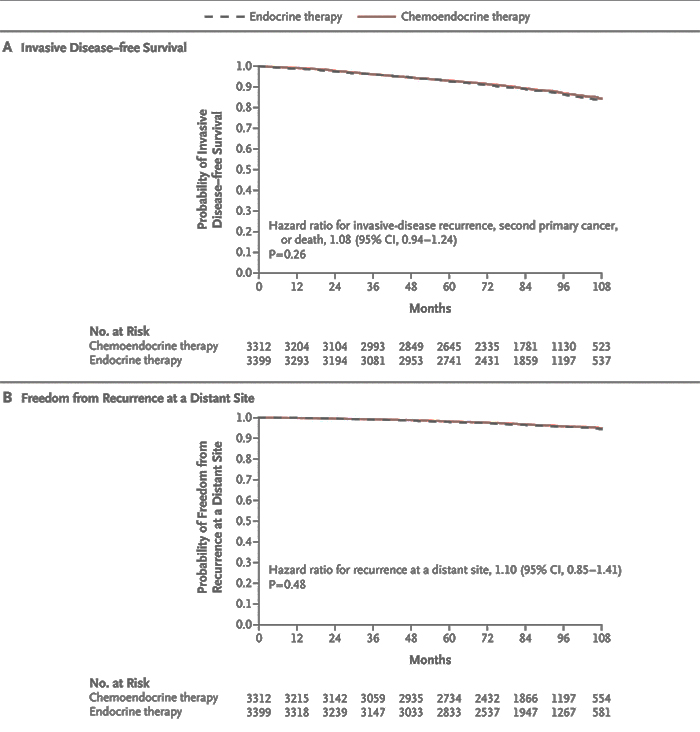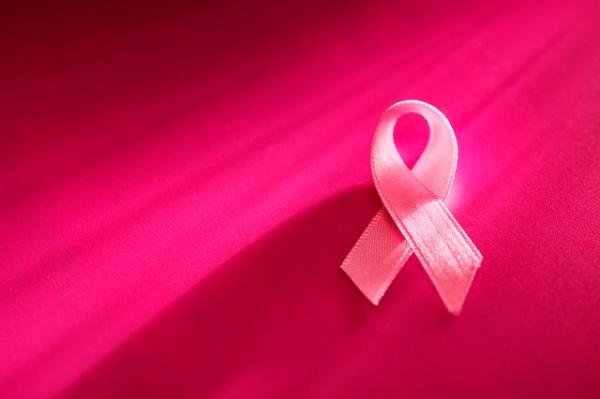Today was a good day for personalized medicine with the report in the NEJM on treating breast cancer. A study looked at women categorized by a 21-gene assay [1] that predicted recurrence and whose care was predicated upon those findings. The women studied had breast cancer localized to their breast, responsive to hormone manipulation and human epidermal growth factor receptor 2 (HER2) negative. For women at low risk, recurrence of breast cancer runs at about 2% at 10-years and chemotherapy is not recommended; for women at high risk, adjuvant chemotherapy reduces recurrence. But what about the women in between high and low risk? Recommendations in this group have been more difficult, especially given the emotional need to do everything possible felt by both patient and physician.
The study assigned women to one of four groups, low-risk patients received only hormonal manipulation, high-risk patients both chemotherapy and hormonal therapy. The mid-range risk patients were randomized, half receiving endocrine treatment alone, the other half both chemotherapy and endocrine therapy. And while patients were recruited for the study until the group of interest, the intermediate scoring women met the size necessary for statistical significance, the overall distribution of women is reflective of the population. Nearly 70% of women fall into this intermediate category where the recommendation for adjuvant care is less certain.
One chart says it all.

There was no difference in disease-free survival, freedom from recurrence and overall survival. The addition of chemotherapy to hormonal manipulation had no benefit. Subsequent sub-group analysis indicated that those women 50 years old or younger, with higher intermediate scores, did experience a benefit from adjuvant chemotherapy and hormonal manipulation. In the author’s words,
“The results of our trial suggest that the 21-gene assay may identify up to 85% of women with early breast cancer who can be spared adjuvant chemotherapy, especially those who are older than 50 years of age and have a recurrence score of 25 or lower, as well as women 50 years of age or younger with a recurrence score of 15 or lower.”
Given the new data, will women and their physicians, opt out of adjuvant chemotherapy? That is a question as yet to be answered. For some women and physicians, this might not be sufficient evidence, and they may want to buy a little “extra protection” by having chemotherapy. Data is not always enough to quell the emotions that a cancer diagnosis imparts. But for many women, chemotherapy will no longer be felt necessary, and that is a big deal.
[1] The assay measures activity of genes involved in cell growth and hormonal response in estimating the risk of cancer recurrence.
Source: Adjuvant Chemotherapy Guided by a 21-Gene Expression Assay in Breast Cancer NEJM DOI:10.1056/NEJMoa1804710




